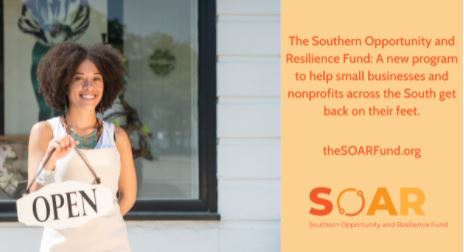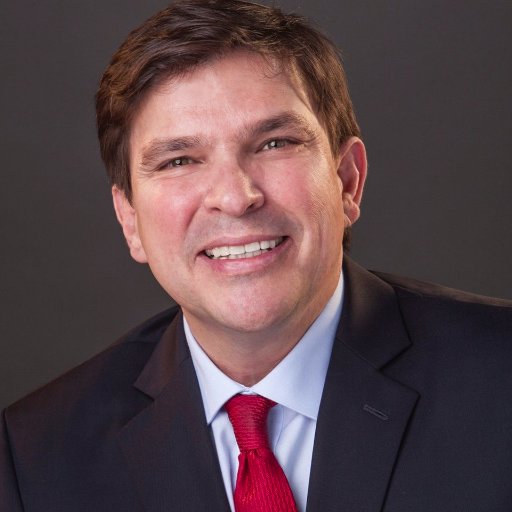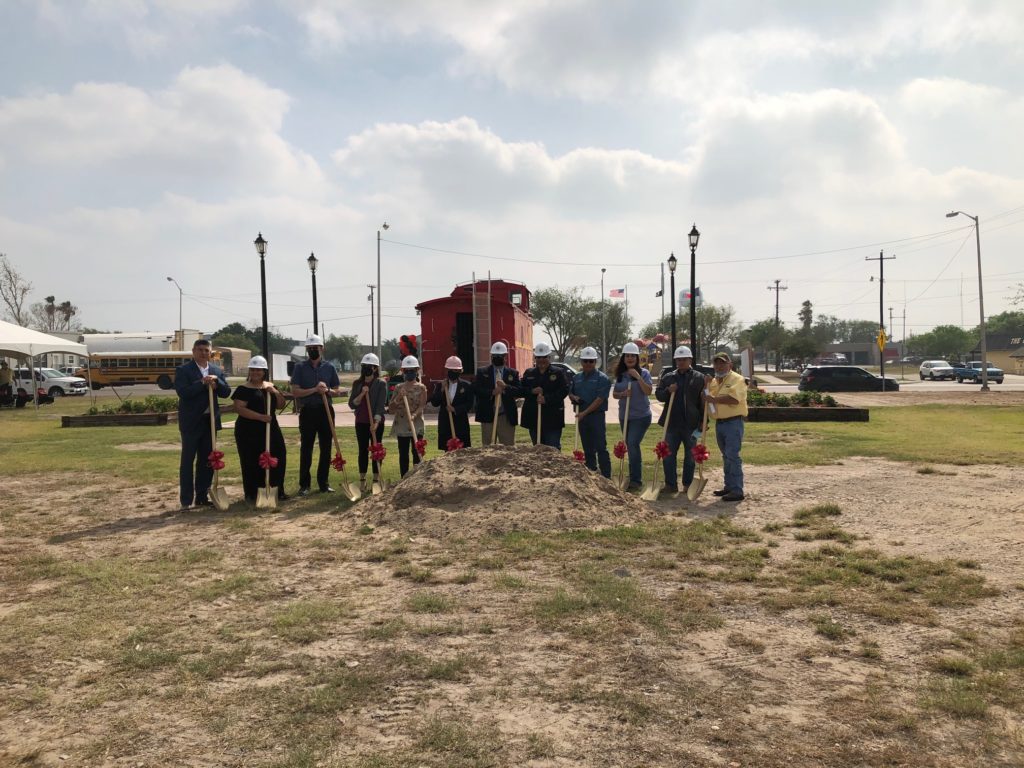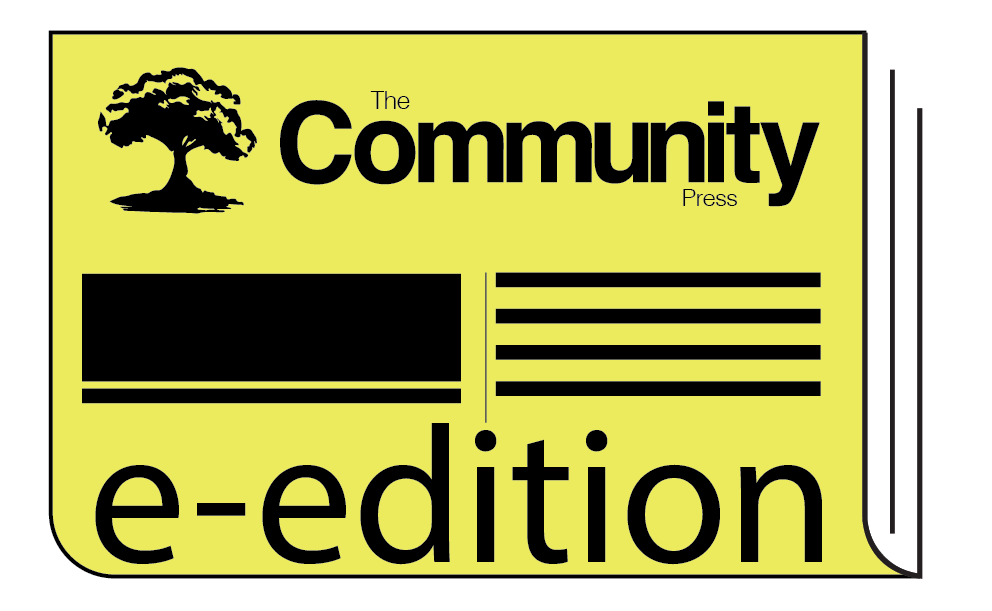
The nation is on a well-deserved trend of honoring and commemorating its fallen members of the armed forces in many ways. It has named its streets, its parks, its public buildings and very notably, in a more personal approach; that of covering entire walls of buildings and other structures with the facial impressions of those that served, and many who died, in that service to their country with murals.
The Elsa VFW Post # 7473, or more specifically known as the Benito Alaniz Post and the city of Elsa EDC have ventured into a project to paint the entire south wall of their VFW building located at the corner of N. Broadway and 8th street with a memorial military mural. This mural will feature the likeness of twenty former area residents that gave their lives in service to their country during their tours of duty in the armed forces. These individuals and their service affiliations are listed on a plaque sitting at the VFW Memorial Park. Also included on the painting is a commemoration of a young female soldier Pvt Rosa Martinez, that was violently murdered in a non-combat incident that occurred while completing her life’s dream of becoming a career solder. The incident that took her life was so drastically similar to the recent occurrence of that of the murder by a fellow soldier of Vanessa Guillen at Fort Hood. The post is planning a separate more detailed homage of her life story in the near future. Other items included in the mural will be numerous depictions of the military branches with their insignias, a battleship, an armed tank and several military aircraft.
The Benito Alaniz Post was established in 1968 and is named after one of the early casualties of the Vietnam War. It is headed by Commander Rosendo Castaneda, a two-tour veteran of the Vietnam War and a retired valley police officer, as well as immediate past commander Lupita M. Perez, one of a very few members of female VFW commanders and a member of the initial group of females permitted into active combat during the Iraq conflict. This post has been selected to receive numerous meritorious state and national awards during their leadership, to include all-state and all-American honors, as well as the prestigious National Community Service award that recognizes the individual membership for their community service contributions.
The mural itself is being drawn and painted by Ben and Anna Varela, a husband and wife team of local artists that have a number of mural works and paintings in the valley. Anna is a local product and Ben comes from a New York Puerto Rican military family that traveled extensively during his youth training in the mural art trade in the process.
The mural is anticipated to be completed by mid-May.
This type of project is the first of its kind for Elsa, but EDC director Jessica Garza is enthusiastic about having future mural works. “This is a long-overdue recognition of our veterans. Our residents are very excited over it. We’re going to try to touch base with our history, our schools and many other aspects of our community that need to be highlighted. This is just step one. We’re not done yet” she stated.


1. Uncertainty is never permanent.
Or better put, uncertainty is always temporary.
No matter what you’re going through, this period of crisis will pass. No matter how long ago March 2020 feels, we all know that at some point our lives will return to normal. Although we don’t know when that will happen, it’s comforting to know that every stressful season of uncertainty is temporary. Hold on to the knowledge that the stress and anxiety has an expiration date, regardless of how acute it feels today.
2. Predictability = safety + security.
In order to feel like we are in control, we need two things: safety and security. Without either, our lives tend to feel like they’re spiraling. That’s why 2020 felt so chaotic and traumatic for so many; our daily routines and coping mechanisms were stripped away because of safety concerns. Without our typical fallbacks, we felt insecure. And for obvious reasons, many of us did not feel safe all year.
So whenever you feel out of control with no method to predict what’s coming next, try to ground yourself through safety and security. Create a routine and stick to it. Focus on things that are inside of your control instead of depending on others to follow through (cc: mask etiquette). Together, these aspects can give you a sense of predictability and control in your life.
3. Hold space for negative emotions.
PSA: It is absolutely OK to not be OK.
Sometimes, it’s absolutely necessary to not feel OK.
We as a culture have a problem with toxic positivity. We love to airbrush over troubled times and pretend that everything is peachy keen, even as the world as we know it is crumbling around us. Thanks, Instagram!
Combat this urge to gloss over the ugly emotions by embracing them. Give them a name. Understand them. Ask them to come inside and offer them a warm beverage and a salty snack. Welcome them with curiosity and compassion. And once you get to know them, release them back to where they came from.
Trying to sweep negative emotions under the rug only gives them more power. They exist. And they’re not going anywhere until you give them acknowledgement, and sometimes, a voice.
This doesn’t mean you have to be consumed by them. In fact, holding space for negative emotions does just the opposite. It gives them a time and a place to be heard so they can leave in a timely manner and not wreak havoc on the rest of your day. This is why so many people tend to bounce back. They acknowledge their emotions and therefore make room for other positive emotions soon after.
So don’t be afraid to get comfortable with the icky feelings you’re actively trying to push away. The sooner you make space for them, the sooner they’ll pass.
4. Accept your reality.
During times of acute uncertainty, it’s almost instinctual to wish for easier times. We love to recreate reality in our imagination in order to cope.
But we can’t change our reality. And when the dissonance between what we wish was reality and what is actually reality comes to a head, it’s easy to feel despondent and depressed.
Don’t set yourself up for failure. Instead, accept the reality of whatever situation you’re in and work to adapt to that. If you continue to force a false narrative on yourself, you’ll spin your wheels until you are forced to surrender. Instead, get creative within your reality.
For example, plenty of 2020 brides eloped instead of having the 200-person gala, and ended up loving their intimate moments. Zoom happy hours replaced restaurant happy hours. Romantic restaurants with all of the fixings popped up in living rooms everywhere. Those who made the best of what they could were also the ones who quickly accepted the new norm and adjusted in suit.
The quicker you can accept your reality and abandon your fantasies, the easier dealing with the real world will be.
5. Simplify your life.
“Michael always says ‘K-I-S-S. Keep it simple, stupid.’ Great advice. Hurts my feelings every time.”
–Dwight Schrute
Great show. Great line.
Take it from Michael Scott—If you try to overwhelm yourself with the complexities of life during any time of uncertainty, you’re just piling it on yourself for absolutely no reason.
Go back to the basics. What do you need to accomplish today? You probably need to get out of bed, feed yourself, clean yourself, clothe yourself, do your job (whatever that entails), take time for yourself, connect with others and sleep.
So please don’t try to make it any more difficult for yourself than it already is.
When in survival mode, we need the basics to anchor us. The things that we know we need to do, and that we even like to do, during times of crisis. The rest can fall off until things stabilize. So if you are pressuring yourself to do more than necessary, you’re only adding additional chaos to an already delicate situation.
Go easy on yourself. Keep it simple. There will be a time in the future when things will go back to normal, and you can be your complicated, over-achieving, hard-worker self. I promise.
6. Set yourself up for success.
Humans love progression. We like feeling in control of our situations, and we like seeing growth happening right before our eyes. So one of the easiest ways to feel better about yourself during times of acute uncertainty, is to create small actionable goals for yourself to cross off a list.
Seriously, the smaller the better. Think: taking your supplements; drinking a certain amount of water per day; walking X amount of steps; cleaning your room… Hell, taking a shower can even count on some days.
And, each and every time you achieve one of your small goals, celebrate. Give yourself a pat on the back for surviving during one of the harder times of your life. We don’t give ourselves enough credit most days – and in times like this – we could use all of the self-confidence we can get. So be sure to show up for yourself by keeping the small promises you’re making, and by celebrating when you’ve followed through with them.
7. Practice self-care.
Self-care can be defined as anything you do to rest, reset or reflect. At its best, self-care is used to refill your cup. We all need to nourish ourselves and our energy, and the best and fastest way to do this is to engage in self-care.
However, self-care is typically the first thing that goes out the window during times of crisis.
We decide we have to focus on everything else—our jobs, our finances, our families, and our friends. But without caring for ourselves first, the rest of these will inevitably suffer.
Even though it feels impossible, carve out time for yourself. If you neglect yourself, you won’t be able to show up as your full self whenever times are tough. Replenish your energy and invest in your own happiness and relaxation. You’ll see the benefits rather quickly if you stay consistent.
To everyone feeling hyper-stressed out thanks to a grueling year, I’m with you. I hope these tips bring you some comfort, solace and relief from the chronic pressure you’ve been experiencing. And remember, uncertainty is never permanent. This will pass. But in the meantime, these tips will help you cope until we are back into our natural routines and rhythms. Stay safe and stay healthy!

Salvation isn’t something we can claim because we were born to believing parents or have attended church. Jesus warned that many would call Him Lord without actually belonging to Him (Matt. 7:22-23). To become a genuine believer in Jesus Christ, we need the following:
• An understanding of the gospel. In order to believe and receive the good news of Jesus Christ, a person must have an understanding of his or her hopeless, sinful condition. It’s also necessary to recognize Jesus’ death on the cross as the sufficient sacrifice required to remove all sins.
• A definite turning point. When someone understands the gospel, he or she will turn from sin in repentance and toward God in faith and obedience.
• A changed life. Changing direction from our old fleshly lifestyle makes way for new life in Christ. Believers have a changed heart, and the sins we once loved, we now hate.
By grace, God’s salvation is offered to all who will believe and receive it through faith. Those who follow Jesus don’t often trudge through the practices of religion out of habit. Instead, their worship and joy are a vibrant response to the personal relationship they have with the Lord.

May is Mental Health Awareness Month. It is crucial that we are taking extra precautions on a daily basis to care for our mental health. The reality right now is that many people are struggling. Some ways we can care for our mental health is being vigilant in getting good sleep, moving our body as much as possible throughout the day, exploring meditation and breathing practices, creating and sticking to a daily/weekly routine, making our environment around us safe and comfortable, drinking plenty of water regularly and limiting alcohol consumption as much as possible. Limiting alcohol consumption is important for many reasons. Alcohol is a depressant, and it can make feelings of depression, anxiety, sadness, loneliness and aggression more prominent. Other mental and behavioral issues that people who drink alcohol excessively can experience include fear and feelings of discontent. Encouraging each other to avoid alcohol can contribute to healthy mental health and well-being. If you would like to hear more about what UNIDAD Coalition is doing in Hidalgo County to promote mental health awareness, please follow Facebook @bhsofsouthtexas

Trained 9-1-1 dispatchers would be able to help a bystander who has a cell phone or landline to provide life-saving Cardiopulmonary Resuscitation, more commonly known as CPR, until paramedics arrive, as a result of House Bill 786 jointly authored by Rep. Terry Canales, D-Edinburg. House Bill 786 was approved by the Texas Legislature on Monday, May 3, 2021 and signed into law by Gov. Greg Abbott on Friday, May 15, 2021. It becomes effective on Wednesday, September 1, 2021.
“CPR – or Cardiopulmonary Resuscitation – is an emergency lifesaving procedure performed when the heart stops beating. Immediate CPR can double or triple chances of survival after cardiac arrest, according to the American Heart Association,” Canales explained.
A bill analysis of House Bill 786 found that there were concerns about the low rate of survival for people who experience sudden cardiac arrest outside of a hospital setting.
“Evidence indicates that early administration of CPR has a positive impact on a patient’s chance of survival. When a person dials 9-1-1, they are in communication with a dispatcher who then directs paramedics to arrive at the scene. It has been suggested that if 9-1-1 dispatchers and other licensed telecommunicators received CPR training they would be able to coach the caller through administering CPR while the paramedics are en route, thus giving the patient a better chance of recovery,” according to the Senate Research Center. “House Bill 786 seeks to require telecommunicators to receive this training as part of their initial licensure training and on an ongoing basis as part of their continuing education.” The Senate Research Center provides quality, specialized, objective research and information to the Texas Senate and Office of the Lieutenant Governor
https://senate.texas.gov/src.php
A bill analysis is a document prepared for all bills and joint resolutions reported out of committee. A bill analysis may include background information on the measure, a statement of purpose or intent, and an analysis of the content of the measure. Rep. Tom Oliverson, R-Houston, a practicing anesthesiologist, is the primary author of House Bill 786, while Canales is one of three joint authors of the legislation. As the primary author of House Bill 786, Oliverson is the legislator who filed House Bill 786 and guided it through the legislative process (also called the primary author).
Legislation is a proposed or enacted law or group of laws.
Filed refers to a measure that has been introduced into the legislative process and given a number.
A bill is a type of legislative measure that requires passage by both chambers of the legislature (House of Representatives and Senate) and action by the governor in order to become effective. A bill is the primary means used to create and change the laws of the state. “Bill” types include Senate and House bills, Senate and House joint resolutions, Senate and House concurrent resolutions, and Senate and House resolutions.
In the House of Representatives, Canales – as a joint author – was authorized by Oliverson to join in the authorship of the measure and have his or her name shown following the primary author’s name on official printings of the measure, on calendars, and in the journal.
Joining Canales as joint authors of House Bill 786 were Rep. Tony Tinderholt, R-Arlington, and Rep. Eddie Morales, D-Austin.
Sen. Charles Perry, R-Lubbock, served as the Senate sponsor of House Bill 786. As sponsor, Perry guided the bill through the Senate after Oliverson/Canales/Tinderholt/Morales passed the legislation through the House of Representatives.
The National 9-1-1 Program, which provides federal leadership and coordination in supporting optimal 9-1-1 services across the nation, provides more details about the roles of 9-1-1 professionals:
• 9-1-1 professionals, also referred to as “dispatchers” or “call takers,” are often the first trained point of contact in an emergency. They begin the important work of obtaining essential information, remaining calm, calming others, and sending the appropriate responders to the right location. They may also provide instructions to the 9-1-1 caller, which in many cases is essential to stabilizing or saving a life, according to 911.gov.
• Throughout the nation, 9-1-1 call centers or public safety answering points (PSAPs) are managed by a variety of local and state agencies, including law enforcement, fire departments, hospitals, and private EMS companies. This varied governance produces a unique challenge for training telecommunicators, as each agency may have its own educational standards.
• Some 9-1-1 professionals are certified as emergency medical dispatchers (EMDs), emergency fire dispatchers (EFDs) or emergency police dispatchers (EPDs). Managers and supervisors may also be certified as emergency number professionals (ENPs) or certified public-safety executives (CPEs).
• The National 9-1-1 Program supports the work of the 911 community to provide training strategies for telecommunicators and has previously convened a working group of 911 associations to develop recommended minimum training guidelines for telecommunicators.
https://www.911.gov/issue_telecommunicatorsandtraining.html
The House Research Organization, which is the nonpartisan research arm of the House of Representatives, provided a bill analysis of House Bill 786.
https://hro.house.texas.gov/about.aspx
The House Research Organization’s bill analysis of House Bill 786 follows:
Subject:
Requiring 9-1-1 dispatchers be trained to coach CPR over the phone
Committee:
Homeland Security and Public Safety — committee substitute recommended
(A committee substitute is a new bill or resolution recommended by a committee in lieu of the original measure. A committee may report a committee substitute rather than a bill with proposed amendments. The committee substitute must contain the same subject matter as the original measure. A committee is a group of legislators appointed by the presiding officer of the house or the senate to which proposed legislation is referred or a specific task is assigned.)
Vote:
9 ayes — White, Bowers, Goodwin, Harless, Hefner, E. Morales, Patterson, Schaefer, Tinderholt
0 nays
Witnesses:
For — Watson Kohankie; Kevin Patel; (Registered, but did not testify: Alec Puente, American Heart Association; Bill Kelly, City of Houston Mayor's Office; John Hawkins, Texas Hospital Association; Dan Finch, Texas Medical Association; Joel Romo, The Cooper Institute/Austin EMS Association/Association of Texas EMS Professionals; Shelia Franklin, True Texas Project; Thomas Parkinson)
Against — None
On — (Registered, but did not testify: Kim Vickers, Texas Commission on Law Enforcement)
Committee Substitute House Bill 786 will require all telecommunicators in the state to be trained during their basic licensing or continuing education courses on how to coach cardiopulmonary resuscitation (CPR) over the phone. The training would be required to:
• Use the most current nationally recognized emergency cardiovascular care guidelines; • Incorporate recognition protocols for out-of-hospital cardiac arrest; and• Provide information on best practices for relaying compression- only CPR instructions to callers.
The Texas Commission on Law Enforcement would be required to adopt rules to implement tele-CPR training as soon as practicable after the bill’s effective date.
The bill will take effect on Wednesday, September 1, 2021.
Committee Substitute House Bill 786 would save the lives of Texans by enabling a bystander, coached by a 911 dispatcher over the phone, to perform CPR on the spot until paramedics arrived. By requiring dispatchers be trained in tele-CPR before they could become licensed or as part of their continuing training, people in cardiac arrest could receive CPR sooner, which could result in a significant increase in survival rates.
Requiring the training to adhere to best practices and nationally recognized emergency cardiovascular care guidelines, would help to ensure consistent and high-quality standards across the state.
A study from the American Heart Association (AHA) indicated the certain individuals who received tele-CPR had a 64 percent better chance of surviving than those who did not. Unfortunately, not everyone is trained in CPR and Texas does not mandate that 9-1-1 dispatchers or other licensed telecommunicators be trained to coach the lifesaving technique by phone.
The Texas Commission on Law Enforcement easily could incorporate the training into existing education for telecommunicators, so it would not impose any additional costs on the state, counties, or municipalities.

A diverse group of community finance organizations, including PeopleFund, announced the Southern Opportunity and Resilience (SOAR) Fund, which aims to raise $150 million to provide affordable capital and free business support to small businesses and nonprofits in 15 southern and southeastern states to help them navigate and rebuild from the Covid-19 health and economic crisis.
The SOAR Fund was created by community lenders in the South to provide economic recovery loans to small businesses in their communities at a time when they are facing unprecedented health and economic challenges. The loans are designed to reach the smallest of small businesses and those that have been historically underbanked – the type of businesses that this coalition of lenders have been serving for decades. These businesses often struggle to access capital from traditional sources but are critical to providing jobs and supporting economic recovery in communities across the South.
“The Covid-19 pandemic has exacerbated an already uneven recovery from the Great Recession. Southern states had slower economic growth, lower labor force participation, and higher unemployment than the rest of the country, partially driven by the historic lack of corporate and philanthropic investment in the region,” said George Ashton, managing director at Local Initiatives Support Corporation (LISC), which manages the Fund. “The SOAR Fund, with support from leading banks, foundations, and corporations, will tackle these issues head-on by addressing structural barriers to economic opportunity by providing capital to Southern small businesses and nonprofits that need it now.”
The portal for small businesses is scheduled to open in April and will offer flexible, affordable loans of up to $100,000 to small businesses and nonprofits with fewer than 50 full-time employees. The Fund replicates similar models that have succeeded in New York and California by working with and through local Community Development Financial Institutions (CDFIs).
All interested small business owners and nonprofits can review program eligibility, product terms, and indicate interest at www.TheSoarFund.org, which will notify business owners once the application portal is live. Once the application portal launches, eligible applicants will be matched with a participating lender that will assist the business owner with the application and provide advisory support.
Catalytic initial grants and loans are being provided by Capital One, Microsoft, the F.B. Heron Foundation, Fidelity Charitable with support from CapShift, the Heifer Foundation, Mercy Investment Services, Woodforest National Bank, Ceniarth, and the Jacksonville, Florida-based Chartrand Family.
“By investing in the Southern Opportunity and Resilience Fund, we are enabling recovery and economic stability to historically under-served businesses and communities through a robust network of CDFI partners to deliver targeted business support services,” said Theresa Bedeau, Community Impact & Investment at Capital One. “Capital One is proud to support SOAR as its entrepreneurs build their businesses and nonprofits, establish financial well-being and secure their futures.”
“We’re pleased to partner and invest in the Southern Opportunity and Resilience (SOAR) Fund with the goal to increase access to capital and support for underserved community businesses and nonprofits,” said Tahreem Kampton, Corporate Treasurer at Microsoft. “Microsoft is committed to addressing racial injustice in our society, ecosystems, and communities. Many small businesses across the country and in our southern and southeastern states have struggled economically due to Covid-19. We are glad to support this collaborative effort to help provide opportunities in communities that have been historically underserved.”
Thirteen CDFIs will originate loans purchased by the Fund, including Access to Capital for Entrepreneurs (ACE), Accion Opportunity Fund, Ascendus, BCL of Texas, Black Business Investment Fund, Communities Unlimited, LiftFund, NCIFund, NDC’s Community Investment Loan Fund, Pathway Lending, PeopleFund, Southern Bancorp Community Partners, and TruFund Financial Services. As a collaborative, these lenders have full reach across the region, have served on the front lines of the economic crisis and have decades of experience providing high-touch lending and advisory services to small businesses and nonprofit organizations. The CDFIs will be supported by leading technical assistance and business support organizations including Winrock International, LISC’s local offices and national rural program, and Small Business Majority, which will help with outreach, education, and hands-on business advisory services. Calvert Impact Capital is arranging and LISC Fund Management is managing the Fund.
“TruFund is proud to be a member of the SOAR Fund Partnership,” said James H. Bason, President and CEO of TruFund Financial Services, a participating CDFI. “We are committed to rebuilding a stronger more resilient small business ecosystem particularly in communities that have suffered from the lack of access to affordable capital and whose vulnerabilities are now exacerbated by COVID-19 and the related economic impact.”
“Small businesses are not only essential to the fabric of our communities — creating jobs, providing valuable services and powering local economies — but they are also essential to the entrepreneurs who start them and the people they employ, in this case people who are historically underserved and adversely affected by the pandemic. It is imperative, then, that we help small businesses adapt, reopen safely and rebuild,” said Patricia McCall, Vice President of Corporate Affairs and Global Strategy at Winrock International. “SOAR offers potential business partners and donors an opportunity to join in this important mission.”
“We encourage all small business owners and nonprofits who need support to visit the website, learn about the Fund and sign up so you’re pre-registered once we launch the program,” said Patrick Davis, Vice President of Strategy at Community Reinvestment Fund, USA (CRF).
When the Fund opens, CRF’s Connect2Capital platform will allow applicants to sign up online and get matched to a lender in less than five minutes.
The SOAR Fund covers: Alabama, Arkansas, Delaware, Florida, Georgia, Louisiana, Maryland, Mississippi, North Carolina, Oklahoma, South Carolina, Tennessee, Texas, Virginia, West Virginia and the District of Columbia.
For more information, visit www.TheSoarFund.org.
| San Benito CISD is proud to announce that it has received a grant of $607,562 from The Musk Foundation. The donation was made after SpaceX founder and CEO Elon Musk announced via Twitter a few weeks ago that he planned to donate $20 million for schools in Cameron County. “We are ecstatic to have been selected as a recipient of this funding from The Musk Foundation and appreciate Mr. Musk's support of our schools and our students,” said Superintendent Dr. Nate Carman. "Considering the added challenges associated with educating students through this pandemic, the timing couldn’t be better," he added. San Benito CISD will be using the grant money to upgrade equipment and plans to purchase technology for teachers, specifically laptops and IPads. These much-needed resources will enhance educational learning for students and improve instructional modules between teachers and students. The Musk Foundation issued the first round of grants, one-quarter of the $20 million, to local school districts throughout Cameron County this week and plans to continue to invest in education by providing other grant opportunities to eligible districts over the course of several phases. The investment in education by Musk marks the start of strong partnerships as he continues to expand operations of his SpaceX company in the area. Cameron County has become an anchor for future space exploration and a testing site for the company’s newest model rockets. As such, this will create more job opportunities and demand for a STEM/STEAM-based educated workforce. "As a district dedicated to elevating opportunities in these fields, we look forward to the many exciting opportunities that this partnership will bring for our students," continued Dr. Carman. A regional leader and among the first to launch academies and educational curriculums focused on STEM, STEAM, ARTS, Career, and Technical Education (CTE), and other technical programs, San Benito CISD looks forward to continuing to prepare students for advanced, highly skilled, and technological fields in these areas. "This grant aligns with our commitment to enhancing student experiences by allowing us to purchase the resources needed by our teachers to enhance learning," said Orlando López, San Benito CISD School Board President. "San Benito CISD is committed to providing our students the Gold Standard in Public Education with the skills, resources, and opportunities to graduate college and career ready," he added. It is expected that over the next few years, the company’s presence will boost economic growth and job opportunities in the STEM and STEAM fields. All funds provided by The Musk Foundation are to be used only for the benefit of schools and students within Cameron County. |

Congressman Vicente Gonzalez announced that applications for the Restaurant Revitalization Fund will open on Monday, May 3 at 11 a.m. CST, making billions in direct aid available to independent restaurants, bars, food trucks, caterers and others in the food and drink industry impacted by COVID-19. The Fund was established by the American Rescue Plan Act of 2021, which Congressman Gonzalez supported and was signed into law by President Joe Biden on March 11, 2021. The Restaurant Revitalization Fund will provide a total of $28.6 billion in direct relief funds to restaurants and other food establishments that have experienced economic distress and significant operational losses due to the COVID-19 pandemic.
Businesses are encouraged to register before the application opens. Registrations are happening now. For more information on the Restaurant Revitalization Fund and to register, click here.
“After an enormously tough year for restaurants, the Restaurant Revitalization Fund is finally here,” said Congressman Gonzalez. “The Fund, enacted as part of the American Rescue Plan Act, will provide much need relief to restaurants, food trucks, caterers and other business owners in the food and drink industry in South Texas. I encourage those who are eligible to register on Friday and to visit the Small Business Administration’s website for more information about the process.”
In preparation, the SBA recommends qualifying applicants familiarize themselves with the application process in advance to ensure a smooth and efficient application experience, specifically by:
- Registering for an account in advance at restaurants.sba.gov starting Friday, April 30, 2021.
- Reviewing the official guidance, including program guide, frequently asked questions, and application sample.
- Preparing the required documentation.
- Working with a point-of-sale vendor or visiting restaurants.sba.gov to submit an application when the application portal opens. [Note: If an applicant is working with a point-of-sale vendor, they do not need to register beforehand on the site.
- Applications open on Monday, May 3, 2021 at 11 a.m. CST
Grants under the Restaurant Revitalization Fund program are tax-free federal grants and do not need to be repaid. They are also more flexible than funds under the Paycheck Protection Program, answering a call from restaurant and bar owners for more versatile relief funds. Restaurants can use this new funding to cover a range of expenses other than payroll, including rent, construction, maintenance and more.
The program makes up to $5 million in grants available per restaurant location, or $10 million per restaurant group, based on total loss in revenue between 2019 and 2020. It specifically sets aside $5 billion for businesses with less than $500,000 in 2019 annual revenue.
A wide variety of businesses in the food and drinks industry are eligible for the program -- including food trucks, food stands, breweries and caterers -- and businesses can apply for a grant even if they have already received a PPP loan.

The City of Elsa’s Pacific Trails Park Project held its groundbreaking ceremonies with news of a new development strategy. The new development will be undertaken at an abandoned railroad property located between VFW St. and Arcadio Padilla St. that the city acquired three years ago. The project will include a 1.5 mile long multi-surface exercise and bike trails system, a complete recreational area that will have beach volleyball courts, a water splashpad, a complete array of playscapes, family outdoor recreational facilities and an eateries/food court area. Funding for the project has come from numerous sources to include local contributions, two $500,000 grants from the Valley Baptist Legacy Foundation and the Texas Parks and Wildlife Department, as well as another $150,000 in-kind labor and machinery use contribution from Hidalgo County Commissioner David Fuentes.
The project was originally slated to be developed in the conventional bid/contract basis, but the onset of the coronavirus pandemic and its overwhelming negative effect on local businesses and the unemployment rate convinced local officials that this project could be utilized to counter that effect. So a decision was made to create a local economic stimulus program by having a local labor force to undertake as much of the construction requirements as possible.
“This project has been long-in-coming and has taken a major effort to secure the funding for it. But, unfortunately, the pandemic has created a need to revitalize our local economy and creating employment opportunities for local residents would be a major contributor towards that effort. Bringing back the american economy will only happen with everyone doing their part…and this is the City of Elsa’s part in that effort,” stated Mayor Al Perez.
The city plans to hire and train numerus local residents in the construction trades during the pandemic to prepare them for opportunities that will come when the local and national economy rebounds in the future. The recirculation of hundreds of thousands of dollars in the local economy will have a tremendous impact in the Delta area. The overall benefits of undertaking this project in this manner will have immediate and long term advantages. The local economy will have immediate positive impact and the community will still get a beautiful and health conscious facility for generations to come.
The city is continuing its fundraising efforts for the project through the office of U.S. Congressman Vicente Gonzalez to supplement existing construction plans and to add additional features to the overall scheme. Construction start-up is anticipated to begin in May of 2021.




